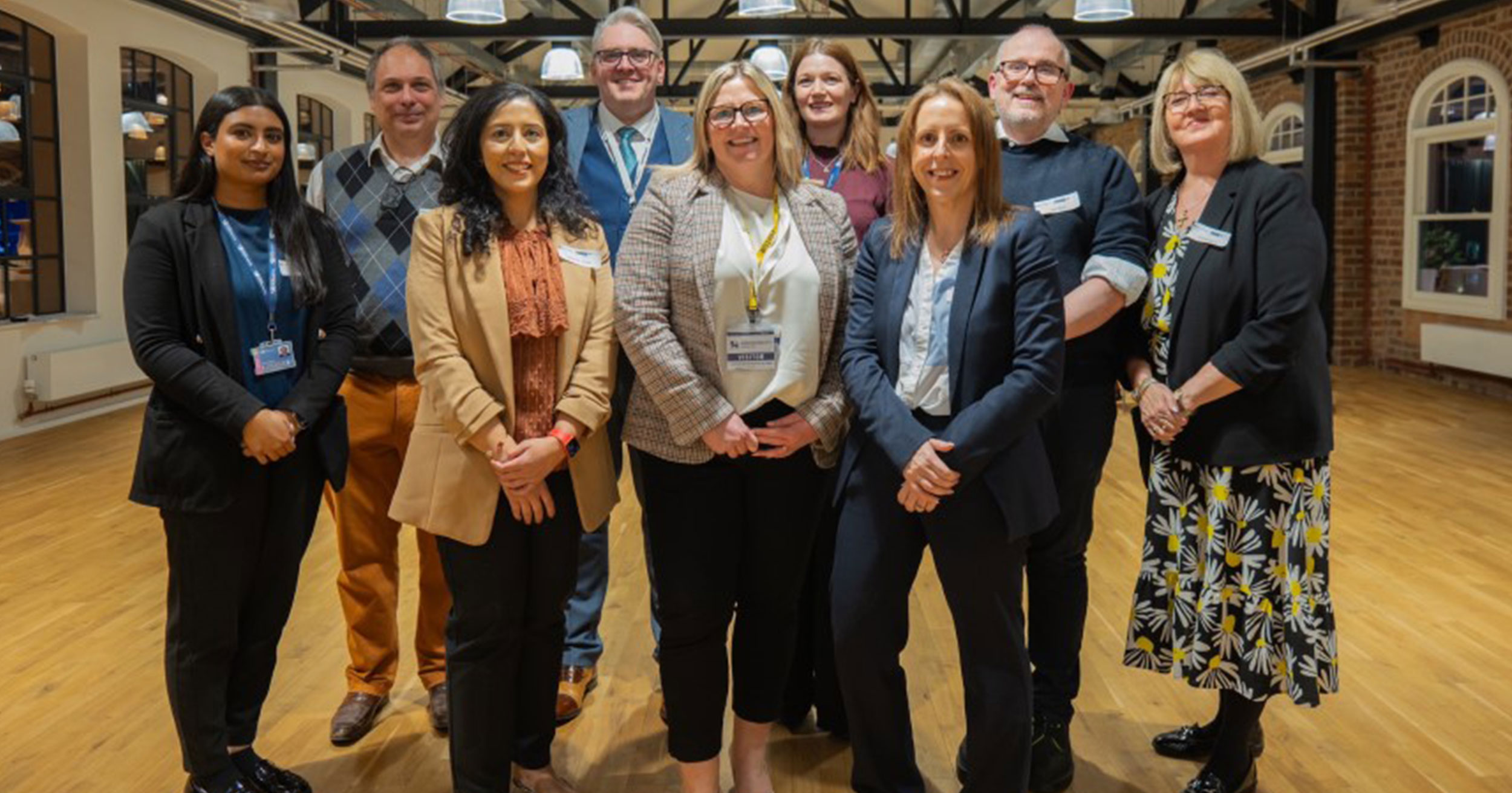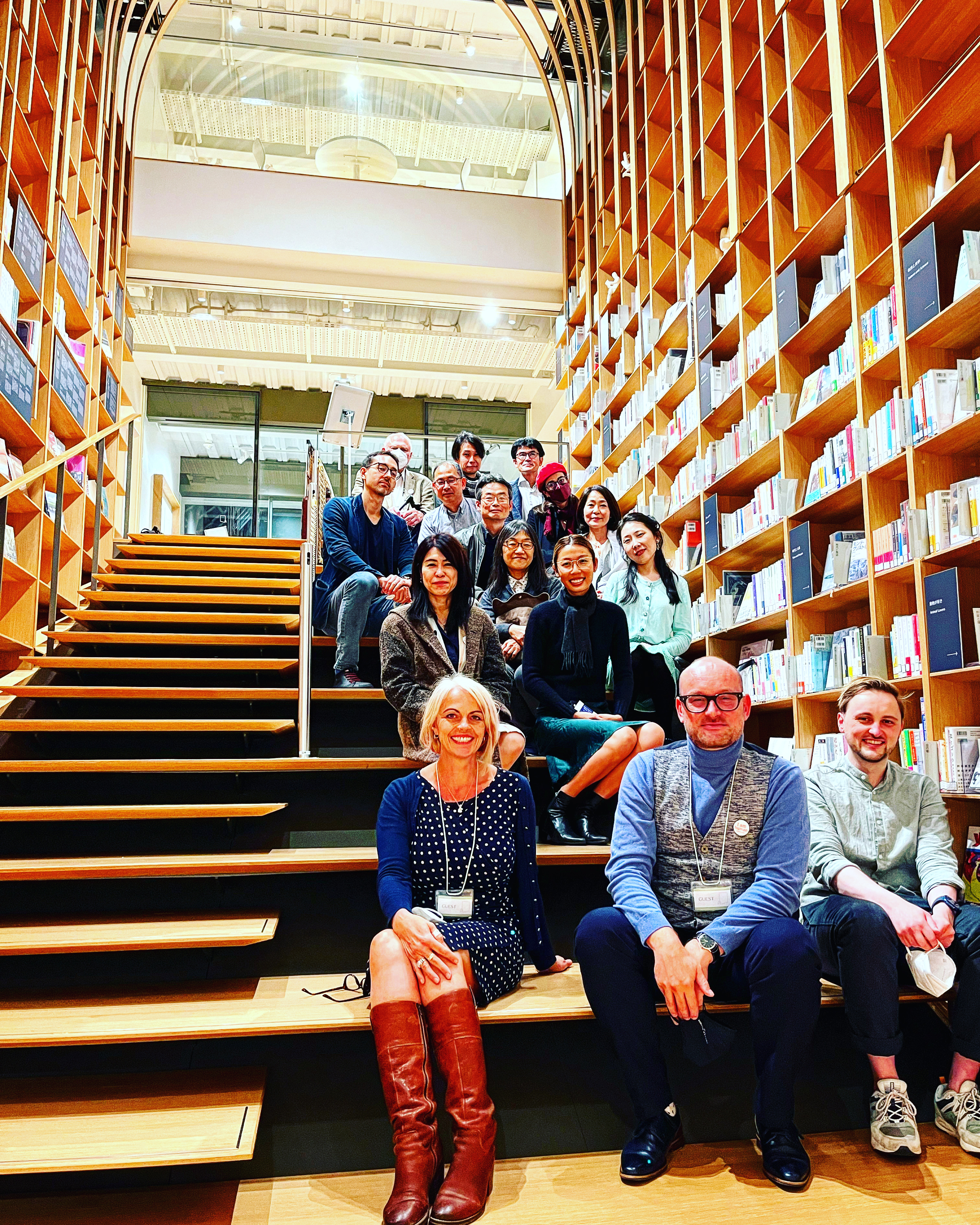
UN/REAL from Japan: Research gives transcultural perspectives on living

Max Berghege, PhD research student in the School of Humanities’ Centre for Transnational and Transcultural Research and Sebastian Groes, Professor in English Literature at the University of Wolverhampton, were successful in receiving a Daiwa Foundation Award for their latest research project, ‘UN/REAL: exploring the work of Haruki Murakami and Kazuo Ishiguro to understand shifting perceptions of reality in the age of Virtual Reality.’
The £12,000 grant will contribute towards a team of Anglo-Japanese scholars, designers, writers and artists exploring the context of virtual technologies, digital wellbeing, social cohesion and shifting perceptions of reality in Japan and Wolverhampton.
UN/REAL, a follow-up project to the international ‘Twenty-First Century Perspectives on Kazuo Ishiguro’ conference at the University of Wolverhampton in February 2020, also organised by Groes and Berghege, is looking at the transcultural lessons the literary works of Nobel Prize winner Kazuo Ishiguro and Japanese novelist Haruki Murakami can offer.
The two researchers are currently in Japan and share, in this blog, the reality of the UN/REAL when taking research around the world.
This week we are in Japan, organising a variety of workshops and events that aim to understand virtual living and future relationships with virtual technology. What do we deem real in a hybrid world where the physical and virtual are increasingly intertwined? What kind of personal bonds will we form with future virtual technologies? And how different or similar are Japanese and Western perspectives when thinking about these questions? A long time in the making, together with Professor Alex Goody (Oxford Brookes University) and our Japanese co-organisers from University of Tokyo, Waseda University, and Tsuru University, the UN/REAL finally kicked off kicked off last Sunday.
First stop, Tokyo. One can’t help but be intrigued by its many alleyways and how they brim with life. They are filled with ramen shops, shadowy bars, second-hand bookshops, as well as greenery: flower pots, small hedges, Japanese maples, they are all crammed in there. Or what to think of the konbini phenomenon on the main streets of Tokyo: every hundred meters there is a 24/7 convenience store to be found, brightly lit, catering to every immediate need. That said, it is often a remarkably tranquil city, with people going about their way calmly, quietly checking their phones in Tokyo’s packed trains. We have been busy figuring out this city, trying not to get lost in translation too much.
So, how did we get here? First we need to go back to February 2020, when we organised the “Twenty-First Century Perspectives on Kazuo Ishiguro” conference at the University of Wolverhampton. For this conference we received a large delegation of Japanese scholars with whom we quickly and happily connected. Plans were made to organise a follow-up event in Tokyo as soon as possible, further continuing our transcultural investigations. Covid was already looming in the background, but little did we know that we had to wait for two and a half years for the next phase of our partnership.
This makes these UN/REAL events just a bit more special. When we did our first event at the Haruki Murakami Library (Waseda University) on Sunday, we were back amongst friends. It breathed extra life in our transcultural discussions as we looked at the literature of Haruki Murakami and how it could help us better understand our contemporary virtual lives. Should we redefine what it means to have a real experience? What is the role of the imagination in dealing with a hybrid everyday reality of the virtual and physical? How does Murakami answer these questions, and how Japanese are these answers of his? The event emphasised once more why the School of Humanities’ Centre for Transcultural and Transnational Research values transcultural thinking so much: it allows us to think about what is universal, or what we can learn from one another.
Our next event will be at the University of Tokyo on Thursday, when we will discuss Kazuo Ishiguro’s novel Klara and the Sun (2021) and the questions it raises about Artificial Intelligence. What kind of connections will we form with, for instance, robots? Will they become our friends, or will they be merely support systems? Will we treat them as equals, or as slaves? These same questions will be discussed at a public event at the LOVOT Museum with Japanese designers of social robots. What do they think about when designing these Artificial Friends?
Speaking of friends, we were also spontaneously invited by a colleague at Waseda University to contribute to a discussion of Ishiguro’s novel and the above questions with about 50 Japanese students. For us it was a wonderful, serendipitous opportunity to get a sense of their perspective. The students talked about their relationships with technology and helped us consider to what extent there are cultural differences between Japanese and British people when tackling these issues. We will do a similar seminar with students from Tsuru University on Saturday, discussing once more the virtue of virtual technologies of our future and what they mean for our personal lives.
We feel very fortunate to have the input of Japanese students, academics, and non-academics this week. We hope the UN/REAL project, funded generously by the Daiwa Foundation, will be the start of exciting transcultural research projects for the University of Wolverhampton. For now, if you’ll excuse us, we will go for a quick session of karaoke.
For more information please contact the Corporate Communications Team.


/prod01/wlvacuk/media/departments/digital-content-and-communications/images-2024/Diane-Spencer-(Teaser-image).jpg)
/prod01/wlvacuk/media/departments/digital-content-and-communications/images-18-19/220325-Engineers_teach_thumbail.jpg)
/prod01/wlvacuk/media/departments/digital-content-and-communications/images-2024/241024-Dr-Christopher-Stone-Resized.jpg)
/prod01/wlvacuk/media/departments/digital-content-and-communications/images/Maria-Serria-(teaser-image).jpg)
/prod01/wlvacuk/media/departments/digital-content-and-communications/images-2024/241014-Cyber4ME-Project-Resized.jpg)
/prod01/wlvacuk/media/departments/digital-content-and-communications/images-2024/240315-Research-Resized.jpg)
/prod01/wlvacuk/media/departments/digital-content-and-communications/images/Kabaddi-WC-(teaser-image).jpg)
.jpg)
.jpg)